About the Journal
INDEX
1. GENERAL INFORMATION
2. SCOPE AND POLICY
2.1. Theme
2.2. Contributions
2.3. Gender equality
2.4. Articles with more than one author
3. JUSTIFICATION
4. WORK FLOW AND INDICATIONS FOR REVIEWERS
5. STATISTICS
6. ANTI-PLAGIARISM
7. REVIEWERS LIST (2020)
8. REVIEWERS LIST (2021)
9. REVIEWERS LIST (2022)
10. AUTHOR CHARGES (APC)
1. GENERAL INFORMATION
Investigaciones Sobre Lectura (ISL) is a publication of the EduVerso (University of Malaga, Spain), and was edited by Asociación Española de Comprensión Lectora until 2020 (AECL, CIF G93213460), professional association, non-profit, founded in 2012. The months of January and July of each year are published with a fixed biannual periodicity. It is a peer-reviewed publication that uses the system of external review by experts (peer review), according to the publication standards of the APA (American Psychological Association). The fulfillment of these requirements facilitates their indexing in the main international databases of journals of the specialty, guaranteeing a greater dissemination of the published works and, therefore, of their authors and work centers.
2. SCOPE AND POLITICS
2.1. Theme
Priority is given to research work in reading comprehension and competence, of a practical nature, in all educational areas.
We can appreciate works on reading competence in particular, reading habits, reading, as well as the Spanish language or acquisition of second languages, or foreign languages. The texts must be in Spanish, and English mandatory, once accepted. The journal ISL offers an optional translation service for authors, with a reduced price for university lecturer and super reduced for AECL members (contact: aecljournals@gmail.com).
Thematic areas are considered as related, such as the promotion of reading and children's and young people's literature, language acquisition processes, types of texts, reading processes, reading motivation, ICT for reading training, libraries and all the linguistic, psychological, pedagogical, speech and journalistic proposals that follow these guidelines.
2.2. Contributions
Research or practical studies should be relevant, preferably to those that exceed the 1,000 subjects studied, both in cross-sectional and longitudinal proposals, which provide some significant and novel data to the field of science that is in general and to reading in particular. You must specify what type of study is (experimental, quasi-experimental ...).
The fundamental parts of each article should be adhered to in the APA sections: Summary (with key words), Introduction, Method, Conclusion / Discussion and References.
ISL publishes research results, studies, experiences on reading comprehension and related subjects (indicated in the previous subsection) written in Spanish and English, once accepted. The works must be original, not having been published in any media or be in the process of publication, being the responsibility of the authors to comply with this rule. The contributions in the magazine can be:
- Investigations: max. 5,000 words of text, without including bibliographic references.
- Reports, Studies and Proposals: max. 6,000 words, without including bibliographic references.
The general considerations applied by ISL are adjusted to the usual parameters for scientific journals, which are those required for indexing in international databases. ISL, an electronic language teaching journal, welcomes and publishes original content (not published in other media totally or partially) and rigorous that deals with the didactics of language and literature from the reading point of view.
The publication of research papers (preferably grouped in the Articles section) is subject to the mandatory quality review of at least two members of the journal (Editorial Board, Advisory Committee and / or External Review Team). Upon receipt, the papers will be sent to the corresponding evaluators, who anonymously, will decide if the article is accepted, accepted with modifications (which will be timely detailed) or dismissed. The authors will receive the corresponding notification in non-determinable, but reasonable terms. In no case will ISL publish works that are already present on the Internet, and in this sense the authors also explicitly commit themselves not to send their collaborations to other media simultaneously. The detection of simultaneous shipments will lead to the deletion of the work, even once published.
2.3. Gender Equality
The editorial policy of ISL, in terms of good practices in gender equality, is as follows:
- Report on whether the source data of the research takes gender into account, in order to allow the identification of possible differences
- Adapt the rules for authors regarding the inclusion of aspects related to sex/gender
- Adapt the checklist used by the editorial committee to screen the manuscripts that arrive at the journal in order to determine if sex/gender is important for the topic studied and if it has been adequately taken into account
- Ensure the use of non-sexist and inclusive language in the editing of manuscripts, following the specific recommendations of the Orientation Guide for the equal use of language and image at the University of Malaga
- Avoid using sexist language, that is, language that discriminates against either sex. To detect linguistic sexism, the so-called inversion rule is very useful, which consists of substituting the feminine terms for the corresponding masculine ones, and vice versa.
- Substitute masculine words that produce ambiguity or discriminate against women. For this, our language has nouns that, regardless of their grammatical gender, designate both sexes, such as the epicenes (character, victim), the collectives (youth, committee) and the abstract ones (management, presidency).
- Use, whenever possible, terms without a grammatical gender mark, since these easily encompass women and men, such as the pronouns who/who, someone and nobody, common nouns in terms of gender (journalist, singer), invariable adjectives (skillful, intelligent).
- Avoid duplications and other cumbersome constructions, unless they are necessary, since effective communication is preferable to linguistic economy.
- Suppress the use of the at sign, since it is not a linguistic sign and cannot be pronounced. The bars are a very useful resource to fill the lack of space in forms and forms.
- Alternate the order of presentation, since, if you always choose to put the masculine term or ending before the feminine (men and women, Mr./Mrs.), it helps to consolidate the idea that one sex is a priority with respect to the other.
- Personalize, writing the document in masculine or feminine, according to the sex of the person to whom they are addressed.
- Make women visible by naming in feminine the positions, trades or professions they hold. In this way, it will be shown that women currently share the leading role with men in the public sphere.
- Do not include women in the term men, but when you want to refer to the two sexes, you will use people, human beings, individuals, people, humanity...
- Give the same treatment to men and women, who will always be named symmetrically.
- Presenting women for their social or professional identity and avoiding presenting them for their gendered condition. Therefore, terms such as woman or feminine will be deleted whenever they are redundant.
- Do not cite women as a separate category.
- Avoid establishing dependency relationships. Women must appear named with personality in themselves, so that they are recognized and valued as independent people. To do this, we must avoid expressions such as wife of, woman of, lady of, widow of, daughter of, which present the female sex with a secondary or subordinate role with respect to the male.
- Avoid expressions that contribute to entrench sexist stereotypes that hinder progress towards equality.
- Show women for their functions and professional successes, not for their physical appearance or external details (clothing, hairstyle...) (Recommendations for an equal treatment of language, Orientation guide for the equal use of language and image in the University of Malaga, pages 46-7).
- Train editors in the importance of aspects related to sex/gender in scientific publishing
- Include the full name of the authors of the published works
- Ensure gender parity in the journal's bodies (editorial committee and advisory council)
- Ensure gender parity in manuscript commissions (such as editorials and discussions, among others) made by the editorial committee
- Monitor that there are no gender inequalities in the management indicators of the manuscripts (acceptance or rejection, journal times or reviewer statistics, among others)
(According to the guidelines provided in http://scielo.isciii.es/scielo.php?script=sci_arttext&pid=S0213-91112015000300001)
2. 4. Articles written by more than one author
Articles written by several authors must include at the end of the article (after the acknowledgments and before the bibliographic references) a new section, entitled "CREdiT authorship contribution", in which the specific contribution of each must be detailed. author or author based on the CREdiT role taxonomy. For more information on this issue, see the following link. Remember to enter this information only in the versions of your article with author data.
3. JUSTIFICATION
ISL is a Spanish publication of international character that has been raised reading, and the whole spectrum that revolves around it, as a fundamental basis of social communicative reality. ISL has been designed to address reading competence, research and results related to this subject, scientific productions that address this topic or that tend to improve it, measure it or evaluate it, the experiences that are developed in it in the different areas that the they deal, in addition to the habit of reading from different professional perspectives such as teaching, pedagogical, psychological, didactic, media, etc., without forgetting the importance of the world of the library in reading.
It is evident that one of the main problems that is awakening more concern within the educational world in recent years is the low level of reading competence of Spanish citizenship, both children and young people and adults. This magazine is founded to be a concrete element of study, reflection and dissemination that helps improve this competence in young people and adults. ISL wants to involve all those who have something to say in this field, both from their scientific perspective and from the daily practice in the classroom. The task is complex; The diverse and multiple cases that occur in the human being as a communicative being cause this work to be huge in its development, but at the same time exciting. It is a task that will always be unfinished, because everything that is related to language is a permanent construction, but it is also true that the strength of this construction in the future depends on past and present actions. In this aspect, the basis is fundamental, which can not be changed from one day to the next, but it requires five years or even generations to settle the changes. For this reason, when studies on the levels of reading comprehension are published at a certain time, it must be taken into account that the effects they collect do not belong to the moment in which the results were generated, but reflect situations of many years ago. . Taking this factor into consideration, ISL considers itself as a publication that reflects this evolution, the actions on this competence, the reflections and the results, with a view away from the present, so that what is currently taking place will have its revenues probably within a few decades.
There is not yet a vaccine against reading incompetence; Your "treatment" should be daily. The results are also transferred when the readers become models. There are more aspects to consider, such as social customs, influenced even by the climate, which favors activities other than reading at times that in other countries, at night anticipated in comparison to the Western, they confine and encourage to take the book among the hands. But if you "open" the range to reading comprehension, objective of this resivsta, not only in Spain, but also in the Spanish-speaking countries, the casuistry is triggered, because the factors that influence the reading habits are varied and multiple, from illiteracy, the coexistence of different languages ??in the same territories and illiteracy in all of them, perhaps Spanish being the language of literacy, but not the language of use; the influences of different cultures when reading is approached; the most urgent interests of the populations, in which sometimes survival is above books and schools; the scarcity of books ..., and a huge list of situations, almost all of them linked to poverty and ancestral customs. ISL wants to collect the efforts and advances that are taking place in these other Spanish-speaking territories, from North America to the South, from Central Africa to those European spaces where Spanish is becoming a second language of learning and use. For this reason, ISL employees are professionals who work in all these places, because the magazine aims to collect reality, plurality and intuit the paths that this subject of study has to follow in the future. But on the other hand, ISL knows the current demands of those who mark the steps to follow in terms of research, so ISL aims to reach the best impact indexes as soon as possible, ISL wants to be read, conceives that the results of the research have of being converted into generalizable knowledge, a function that any research journal has fulfilled.
Therefore, ISL presents a clear and clear our roadmap in the future, always bearing in mind that above all, it wants to be useful to all those interested from different perspectives in the field of reading comprehension. ISL opens its pages to all those who wish to communicate their experiences or their thoughts and ideas. Its publication rules are only within one click. Their will is to reach a bigger and better audience and, in addition, reciprocal and feedback, because the purpose of ISL is to contribute its "grain of sand" in the immense task of improving reading competence, because it understands that this will help to improve communication in the multiple societies that make up any international speaking community.
4. WORK FLOW AND INDICATIONS FOR REVIEWERS
Default review deadlines
The predefined conditions for each review can be modified during the editorial process.
Time allowed to review responses (weeks) 1
The usual deadline for reviews is 3 WEEKS
Anonymous evaluation
Display a link to "guarantee blind review" during upload Declaration of conflicts of interest of the reviewers Request a conflict of interest statement during a peer review.
Indications for review
The reviewer guidelines will provide reviewers with the necessary criteria to judge whether a submission is suitable for publication in the journal, and may include any particular instructions to prepare an effective and useful review. When conducting the review, the reviewers have two open text boxes: the first "for the author and the editor" and the second "for the editor". The journal manager can also create a peer review form in the Review forms section. In any case, editors will have the option to include reviews for the author.
- All articles will be evaluated by a blind peer review process by accredited specialists in the task, guaranteeing anonymity in the review.
- Before beginning the peer review process, the Editorial Board will carry out a first evaluation to verify that the article conforms to the characteristics and theme of the journal.
- Articles that pass the first review will be subjected to two evaluations: an internal one (member of the Editorial Board) and an external one (external evaluator). In case of discrepancy between evaluators, a third evaluation will be requested.
- The evaluators will review the work with criteria of independence, objectivity, responsibility and absence of conflict of interest.
- To review the articles, the evaluators will use this template containing the technical and scientific criteria, comments and suggestions for improvement that must be completed. Regarding the comments and suggestions for improvement, those notes and considerations that help to improve the quality of the article will be proposed, if necessary.
- The evaluators will have three options for global evaluation of the article (in all cases the decision must be argued in the comments section):
- It must be published as is.
- It can be published after corrections and improvement suggestions have been made.
- It cannot be published. - To avoid plagiarism conflicts, evaluators should use any free anti-plagiarism application: Grammarly and the search engines Google and Google Scholar, Turnitin or Ephorus.
Review Options: Double Blind
Access for reviewers
Note: The Reviewer Email Invitation will contain a special URL that directs reviewers directly to the review page for submission (with access to any other page that requires login). For security reasons, editors cannot modify email addresses or add carbon copy or blind-copy addresses prior to sending invitations to reviewers.
- One-click access for reviewers enabled.
- Reviewers are allowed access to submission files only after they have accepted the review.
5. STATISTICS
6. ANTI-PLAGIARISM
Investigaciones Sobre Lectura (ISL) maintains an anti-plagiarism policy that ensures that all published works are unpublished, through the professional application of Ithenticate's Crossref Similarity Check services, to scan all proposals.
We use the service on all papers that have passed the editorial screening process and are eligible for blind peer review.
Our journal reserves the decision to reject articles with an inappropriate percentage of similarity.
We also have specific plagiarism detection tools such as Unicheck, a free access platform that monitors originality and controls plagiarism.
7. REVIEWERS LIST (2020)
Moisés Selfa Sastre (University of Lleida, Spain)
Manuel Francisco Romero Oliva (University of Cádiz, Spain)
Hugo Heredia Ponce (University of Cádiz, Spain)
Paula Rivera Jurado (University of Cádiz, Spain)
Milagrosa Parrado Collantes (University of Cádiz, Spain)
Inmaculada Clotilde Santos Díaz (University of Málaga, Spain)
Natalia Castillo Fadic (Pontifical Catholic University of Chili, Chili)
María Rosa Conesa (University of Murcia, Spain)
Almudena Barrientos Báez (University of la Laguna, Spain)
Raquel Benítez Burraco (University of Sevilla, Spain)
Eva Herrera Gutiérrez (University of Murcia, Spain)
José Hernández Ortega (University of Alicante, Spain)
Carlos Bráñez Mendoza (Pontifical Catholic University of Peru, Peru)
Isabel García Parejo (University Complutense of Madrid, Spain)
Eva Álvarez Ramos University of Valladolid, Spain)
Magdalena López Pérez (University of Extremadura, Spain)
Cristina Castillo Rodríguez (University of Málaga, Spain)
Yudith Rovira Álvarez (University of Pinar del Río, Cuba)
Rubén Cristóbal Hornillos (University of Zaragoza, Spain)
Zósimo Lópes Pena (UNIR, Spain)
Efrén Viramontes Anaya (Escuela Normal Rural Ricardo Flores Magón, Mexico)
Chistian Arenas Delgado (University of Santo Tomás de Valparaíso, Chili)
Carmen Romero Sánchez-Palencia (University of Francisco de Vitoria, Spain)
Carolina González Ramírez (Pontificia Universidad Católica de Valparaíso, Chili)
Marek Baran (University of Lodz, Poland)
Marjana Sifrar Kalar (University of Lubiliana, Slovenia)
Francisco García Marcos (University of Almería, Spain)
María Victoria Mateo García (University of Almería, Spain)
Ana Cea Álvarez (University of Minho, Portugal)
Xaquín Núñez Sabarís (University of Minho, Portugal)
María Begoña Gómez Devís (University of Valencia, Spain)
Pablo Moreno Verdulla (University of Cádiz, Spain)
Virginia Calvo Valios University of Zaragoza, Spain)
María Teresa Santa María (UNIR, Spain)
Leyre Alejaldre Biel (University of Columbia, USA)
Cristina San José de la Rosa (University of Valladolid, Spain)
8. REVIEWERS LIST (2021)
Mirian Noriega Jacob (University of Sonora, Mexico)
Milagros Torrado Crespón (UNIR, Spain)
Zósimo López Pena (UNIR, Spain)
Aynara Celsa (University of La Plata, Argentina)
Pedro García Guirao (University of Ostrava, Czechia)
Carolina González Ramírez (Pontifical Catholic University of Valparaíso, Chili)
Tricia Mardones Nichi (University of Santiago de Chili, Chili)
Eva Álvarez Ramos (University of Valladolid, Spain)
Francisco García Marcos (University of Almería, Spain)
Andrea Bustos Ibarra (Pontifical Catholic University of Valparaíso, Chili)
Enrique Sologuren Insúa (University of Los Andes, Colombia)
Hugo Heredia Ponce (University of Cádiz, Spain)
Xaquín Núñez Sabarís (University of Minho, Portugal)
Marcela Jarpa Azagra (Pontifical Catholic University of Valparaíso, Chili)
Cristina Castillo Rodríguez (University of Málaga, Spain)
Sidoní López (UNIR, Spain)
María Teresa Caro Valverde (University of Murcia, Spain)
Magdalena López Pérez (University of Extremadura, Spain)
Alejandro Jara Lezama (Meritorious Autonomous University of Puebla, Mexico)
Paula Rivera Jurado (University of Cádiz, Spain)
Leonor Ruiz Guerrero (University of Murcia, Spain)
Pedro Dono López (University of Minho, Portugal)
Michel Santiago del Pino (University of Cádiz, Spain)
José Hernández Ortega (University of Alicante, Spain)
Cristian Arenas Delgado (University of Barcelona, Spain)
Cruz García Lirios (Autonomous Mexico State University, Mexico)
Pablo Moreno Verdulla (University of Cádiz, Spain)
Milagrosa Parrado Collantes (University of Cadiz, Spain)
Alex Navarro Hernández (Veracruz University Xalapa, Mexico)
Antonio Díez Mediavilla (University of Alicante, Spain)
Begoña Gómez Devís (University of Valencia, Spain)
Natalia Castillo Fadic (Pontifical Catholic University of Chili, Chili)
Virginia Calvo Valios (University of Zaragoza, Spain)
Dolores Lerma Sanchís (University of Minho, Portugal)
Ana María Cea Álvarez (University of Minho, Portugal)
Victoria Mateo García (University of Almería, Spain)
Ángela Balça (University of Évora, Portugal)
Pelusa Orellana (University of Los Andes, Colombia)
Álvaro Pérez García (UNIR, Spain)
Almudena Barrientos Báez (University of La Laguna, Spain)
9. REVIEWERS LIST (2022)
Mirian Noriega Jacob (University of Sonora, Mexico)
Milagros Torrado Crespón (UNIR, Spain)
Zósimo López Pena (UNIR, Spain)
Aynara Celsa (University of La Plata, Argentina)
Pedro García Guirao (University of Ostrava, Czech Republic)
Carolina González Ramírez (Pontifical Catholic University of Valparaíso, Chile)
Tricia Mardones Nichi (University of Santiago de Chile, Chile)
Eva Álvarez Ramos (University of Valladolid, Spain)
Francisco García Marcos (University of Almería, Spain)
Andrea Bustos Ibarra (Pontifical Catholic University of Valparaíso, Chile)
Enrique Sologuren Insúa (University of Los Andes, Colombia)
Hugo Heredia Ponce (University of Cádiz, España)
Xaquín Núñez Sabarís (University of Minho, Portugal)
Marcela Jarpa Azagra (Pontifical Catholic University of Valparaíso, Chile)
Cristina Castillo Rodríguez (University of Malaga, Spain)
Sidoní López (UNIR, Spain)
María Teresa Caro Valverde (University of Murcia, Spain)
Magdalena López Pérez (University of Extremadura, España)
José Alejandro Martínez Lara (Adolfo Ibanez University, Chile)
Alejandro Jara Lezama (Meritorious Autonomous University of Puebla, Mexico)
Paula Rivera Jurado (University of Cadiz, España)
Leonor Ruiz Guerrero (University of Murcia, España)
Pedro Dono López (University of Minho, Portugal)
Michel Santiago del Pino (University of Cadiz, España)
José Hernández Ortega (University of Alicante, Spain)
Cristian Arenas Delgado (University of Barcelona, Spain)
Cruz García Lirios (Autonomous University of the State of Mexico, Mexico)
Pablo Moreno Verdulla (University of Cadiz, Spain)
Milagrosa Parrado Collantes (University of Cadiz, Spain)
Alex Navarro Hernández (Veracruzana Xalapa University, Mexico)
Antonio Díez Mediavilla (University of Alicante, Spain)
Natalia Castillo Fadic (Pontifical Catholic University of Chile, Chile)
Virginia Calvo Valios (University of Zaragoza, España)
Dolores Lerma Sanchís (University of Minho, Portugal)
Ana María Cea Álvarez (University of Minho, Portugal)
Victoria Mateo García (University of Almeria, España)
Ángela Balça (University of Evora, Portugal)
Marek Baran (University of Lodz, Poland)
Pelusa Orellana (University of Los Andes, Colombia)
Almudena Barrientos Báez (University of La Laguna, Spain)
Macarena Becerra Quero (University of Málaga, Spain)
Enrique Sologuren Insúa (University for Development, Chile)
Rafael Negrete Portillo (Complutense University of Madrid, Spain)
Raquel Benítez Burraco (University of Sevilla, Spain)
10. AUTHOR CHARGES
Authors are not asked to pay Article Processing Charges (APCs) for this journal in any case.

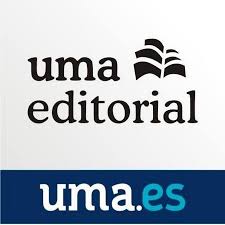
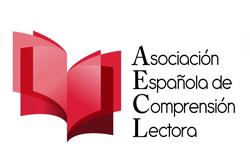
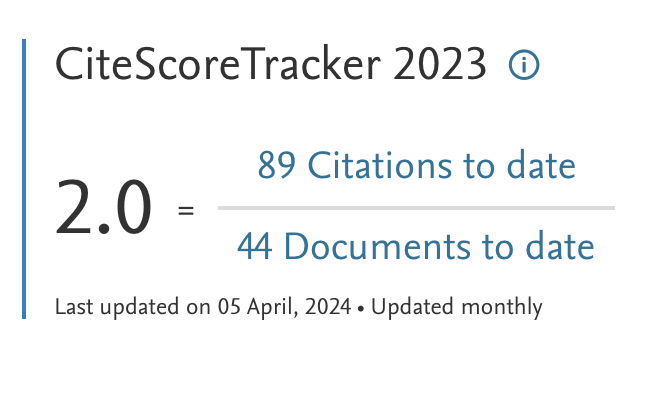
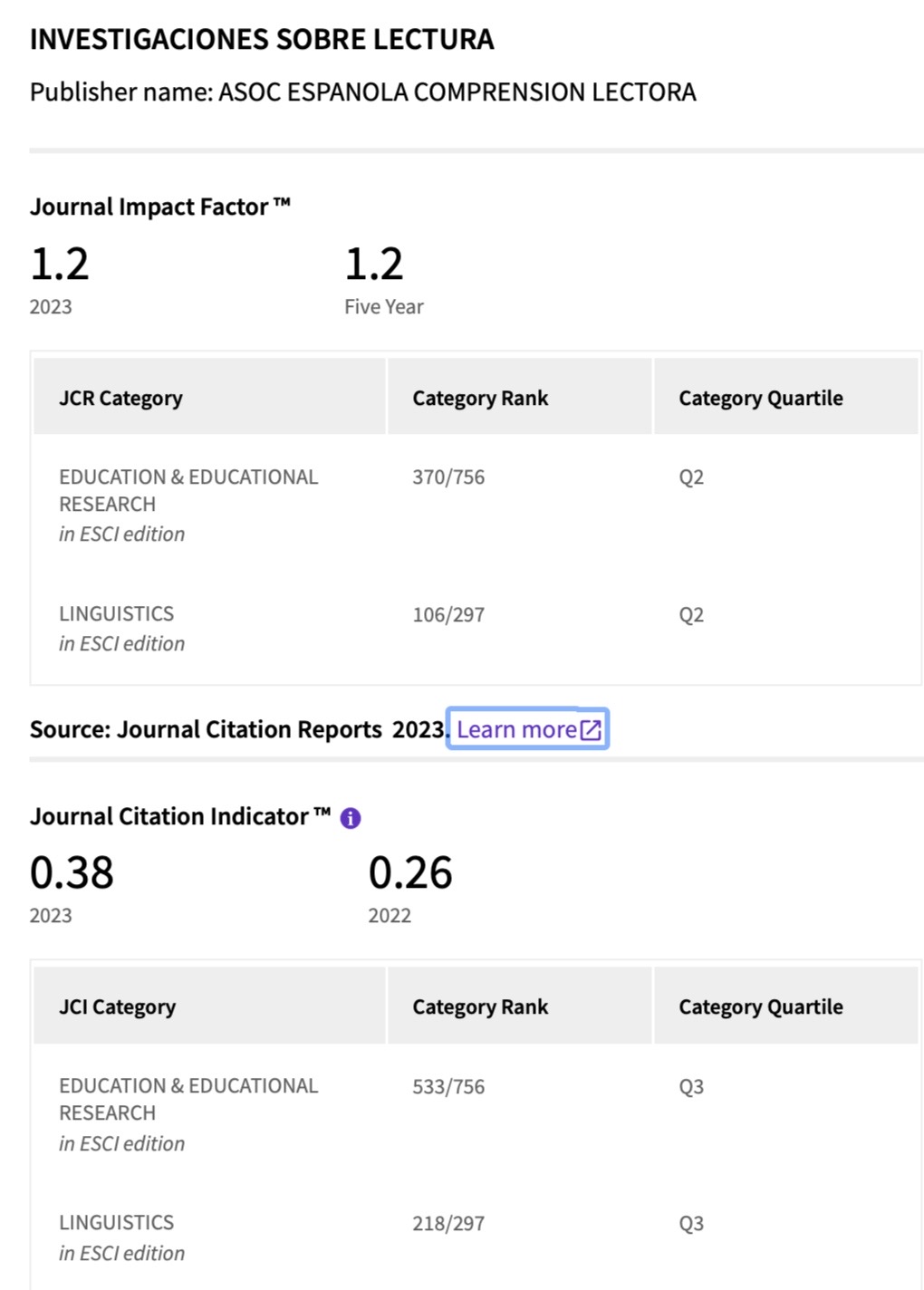
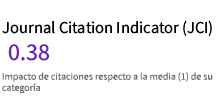
31.png)









